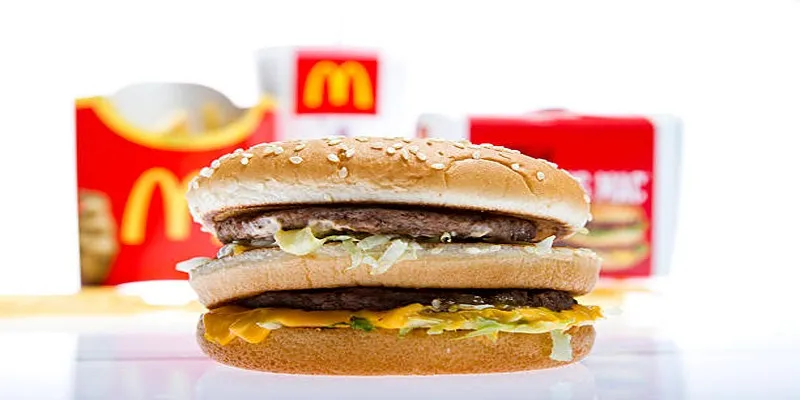Overcoming Post-Meal Slumps: Here's Why You Feel Sleepy
Have you ever felt sleepy after a meal? This is a common experience, often occurring as a natural response of your body. While we consume food to gain energy, the process of digestion itself requires energy, which can lead to a feeling of tiredness. Understanding why this happens can help you manage your diet and maintain better energy levels after meals.
What is Postprandial Somnolence?

The scientific term for feeling sleepy after eating is postprandial somnolence. This natural drowsiness occurs due to the body’s response to food intake, especially carbohydrates. When you consume carbs, your body breaks them down into glucose, which fuels your cells. As glucose enters the bloodstream, insulin is released from the pancreas to regulate blood sugar levels.
Insulin also stimulates the production of tryptophan, an amino acid essential for producing serotonin and melatonin, hormones that regulate sleep.
What Happens in Your Body After Eating?
After eating, your body enters a postprandial state, focusing on digestion. This process demands energy, leading to tiredness. Several bodily changes occur post-meal that contribute to sleepiness:
Increase in Parasympathetic Nervous System Activity
The parasympathetic nervous system (PNS) regulates digestion and promotes relaxation. During meals, PNS activity increases as part of the “rest and digest” response, reducing heart rate and blood pressure, making you feel calmer and more relaxed.
Reduction of Orexin Levels
Orexin, a neurotransmitter, promotes wakefulness and energy. However, post- meal insulin production inhibits orexin, leading to decreased alertness and increased drowsiness.
Diverting Blood Flow
Digestion requires significant blood flow to the stomach and intestines, reducing the blood available for other areas, including the brain. This can result in mental fatigue or fogginess after eating.
What Foods Can Contribute to Postprandial Somnolence?
While all meals can induce some level of postprandial somnolence, certain foods and eating habits can intensify this effect. Recognizing these factors helps make informed dietary choices.
High-carbohydrate Meals
Carbohydrates are the main trigger for postprandial somnolence. High glycemic index (GI) carbs cause significant spikes in blood sugar and insulin, leading to pronounced sleepiness. Examples include white bread, sugary snacks, and processed foods.
High Fat Content
High-fat foods require more energy for digestion, which can prolong the process and contribute to postprandial somnolence. Additionally, high-fat meals can increase orexin levels, reducing sleepiness.
Large Meals
Meal size affects post-meal sleepiness. Larger meals demand more energy for digestion and can cause discomfort and bloating, contributing to fatigue.
Eating Habits
Poor eating habits, such as eating quickly, insufficient chewing, or skipping meals, can exacerbate postprandial somnolence by straining your digestive system and causing blood sugar fluctuations.
Other Causes of Postprandial Somnolence
Besides physiological reasons, external factors can cause postprandial somnolence:
- Lack of Sleep: Sleep deprivation can lead to increased drowsiness after meals as your body tries to compensate for lost rest.
- Low Iron Levels: Iron is crucial for producing red blood cells that carry oxygen. Low iron levels can cause anemia, resulting in tiredness and weakness.
- Conditions such as high or low blood pressure, thyroid issues, and other medical conditions can also contribute to postprandial somnolence.
How Can You Manage Postprandial Somnolence?

While it’s normal to feel sleepy after eating, you can manage this fatigue and improve your energy levels with these strategies:
Choose Low GI Foods
Opt for foods with a lower glycemic index to prevent extreme blood sugar spikes and crashes, reducing postprandial somnolence. Examples include whole grains, legumes, fruits, and vegetables.
Balance Your Meals
Incorporate a balance of protein, carbohydrates, and healthy fats in your meals to maintain stable blood sugar levels and reduce drowsiness associated with high-carb or high-fat meals.
Avoid Overeating
Consume smaller portions and avoid overeating to reduce postprandial somnolence. Listen to your body’s fullness signals to prevent overindulgence.
Practice Mindful Eating
Slow down and focus on your meal to become more aware of your body’s satiety cues, preventing overeating. Proper chewing aids digestion and reduces fatigue.
Conclusion
Managing postprandial somnolence and boosting energy levels after meals is achievable with simple dietary adjustments. Opt for low glycemic index foods, balance your meals, avoid overeating, and practice mindful eating to minimize fatigue and enhance well-being. By implementing these strategies, you can maintain steady energy levels throughout the day and avoid the post-meal slump.









